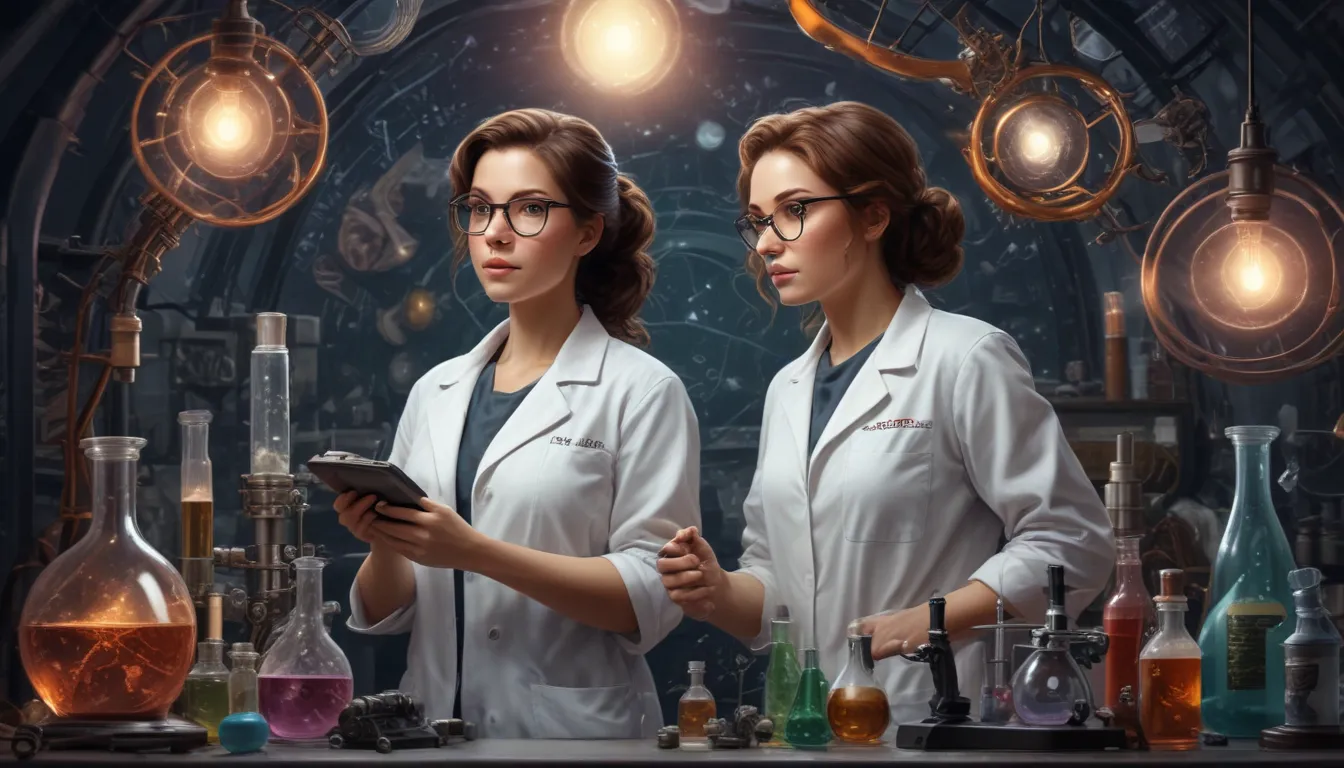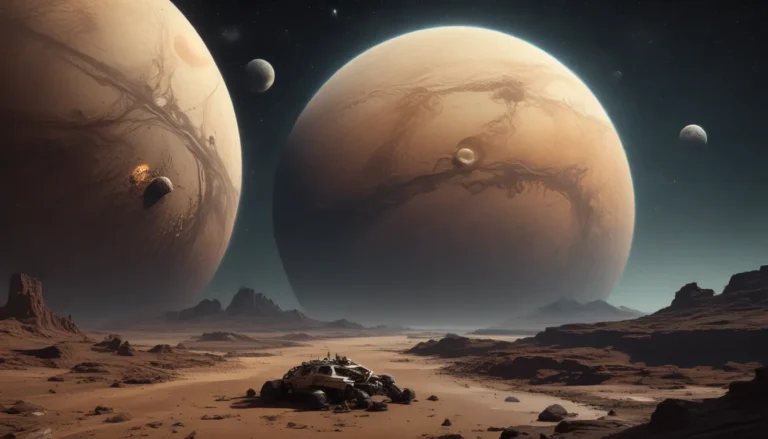A Note About Images: The images used in our articles are for illustration purposes only and may not exactly match the content. They are meant to engage readers, but the text should be relied upon for accurate information.
Women have made significant strides in the field of science, breaking barriers and defying stereotypes along the way. From pioneering research to groundbreaking discoveries, their contributions have shaped our world in unimaginable ways. In this article, we delve into 22 fascinating facts about women in science, highlighting their triumphs, challenges, and enduring legacy. Join us on a journey of discovery as we celebrate these remarkable scientists and their exceptional achievements.
Women Pioneers in Science
Marie Curie: A Trailblazer in Research
Marie Curie, the first woman to win a Nobel Prize, left an indelible mark on the scientific community with her groundbreaking research on radioactivity. She remains the only person to be honored with Nobel Prizes in two different sciences – Physics and Chemistry.
Ada Lovelace: The Mother of Computing
Born in 1815, Ada Lovelace is hailed as the world’s first computer programmer, laying the foundation for modern computing long before computers were even invented.
Lise Meitner: A Nuclear Pioneer
In the early 20th century, Lise Meitner played a crucial role in the discovery of nuclear fission, a breakthrough that revolutionized the field of nuclear science.
Breaking Barriers in the 20th Century
Rosalind Franklin: DNA Pioneer
Rosalind Franklin’s X-ray diffraction images were instrumental in unraveling the double helix structure of DNA, yet her contributions were initially overlooked.
Chien-Shiung Wu: Defying Physics Laws
Known as the “First Lady of Physics,” Chien-Shiung Wu challenged the conservation of parity law and proved it wrong, making a significant impact in the world of physics.
Barbara McClintock: Genetic Trailblazer
Barbara McClintock, a pioneering geneticist, received the Nobel Prize in Physiology or Medicine for her groundbreaking discovery of genetic transposition, also known as “jumping genes.”
Women in Space Exploration
Valentina Tereshkova: A Space Pioneer
Valentina Tereshkova made history as the first woman to fly in space, orbiting Earth 48 times in 1963 and paving the way for future female astronauts.
Sally Ride: America’s First Woman in Space
In 1983, Sally Ride made history as the first American woman to journey into space, breaking barriers and inspiring generations of women in the field of space exploration.
Mae Jemison: An Astronaut Trailblazer
Mae Jemison, the first African American woman in space, soared aboard the Space Shuttle Endeavour in 1992, cementing her place in history as a trailblazer in space exploration.
Environmental Science Leaders
Rachel Carson: Environmental Champion
Rachel Carson’s seminal work, “Silent Spring,” published in 1962, ignited the environmental movement and raised awareness about the impact of pesticides on the environment.
Wangari Maathai: Green Advocate
Wangari Maathai founded the Green Belt Movement in 1977, advocating for environmental conservation through tree planting and earning her the Nobel Peace Prize in 2004.
Sylvia Earle: Ocean Conservationist
Sylvia Earle, a pioneering oceanographer, became the first female chief scientist of the U.S. National Oceanic and Atmospheric Administration, spearheading efforts in marine conservation.
Innovators in Technology and Engineering
Hedy Lamarr: Technological Trailblazer
Hedy Lamarr, an actress and inventor, co-invented a radio guidance system during World War II, laying the groundwork for modern Wi-Fi and Bluetooth technology.
Grace Hopper: Computer Pioneer
Grace Hopper developed the first user-friendly business computer software program in the 1950s and coined the term “debugging,” revolutionizing the field of computer science.
Katherine Johnson: Space Mathematician
Katherine Johnson, a pioneering mathematician, played a crucial role in the United States’ aeronautics and space programs, including calculating trajectories for the Apollo 11 mission to the moon.
Trailblazing Women in Science Today
Jennifer Doudna and Emmanuelle Charpentier: CRISPR Pioneers
In 2020, Jennifer Doudna and Emmanuelle Charpentier were awarded the Nobel Prize in Chemistry for their groundbreaking work on the development of the CRISPR-Cas9 gene-editing technology.
Tu Youyou: Malaria Researcher
Tu Youyou received the Nobel Prize in Physiology or Medicine in 2015 for her discoveries in developing a novel therapy against malaria, saving countless lives in the process.
Donna Strickland: Laser Physics Pioneer
Donna Strickland made history in 2018 by becoming the third woman to win the Nobel Prize in Physics for her groundbreaking work in the field of laser physics.
Overcoming Challenges in Science
Gender Disparities: A Persistent Issue
Women in science often face hurdles such as lower promotion rates, reduced funding opportunities, and limited recognition compared to their male counterparts.
Combatting Bias: A Collective Effort
Gender bias and stereotypes continue to hinder women’s progress in the scientific community, highlighting the need for greater awareness and advocacy for gender equality in STEM fields.
Empowering Women in Science
Initiatives like the United Nations’ International Day of Women and Girls in Science aim to promote equal access and participation for women in science, fostering mentorship programs and scholarships to support the next generation of female scientists.
Celebrating Women’s Contributions to Science
Women in science have shattered barriers, defied stereotypes, and pushed the boundaries of knowledge in various fields. Their resilience, groundbreaking discoveries, and unwavering commitment to excellence serve as inspiration for future generations of scientists. From Marie Curie’s radioactive legacy to Ada Lovelace’s innovative programming, these trailblazing women have not only transformed scientific knowledge but have also paved the way for greater gender equality in STEM. Let us continue to champion, uplift, and amplify the voices of women in science, recognizing their invaluable contributions and ensuring their rightful place in the annals of scientific history.
Was this article helpful?
Our dedication to delivering accurate and engaging content is central to our mission. Each fact presented on our platform is contributed by individuals like you, offering a diverse range of insights and information. Our team of editors meticulously reviews each submission to uphold the highest standards of authenticity and credibility. Trust in our commitment to delivering quality content as you explore and learn with us.





